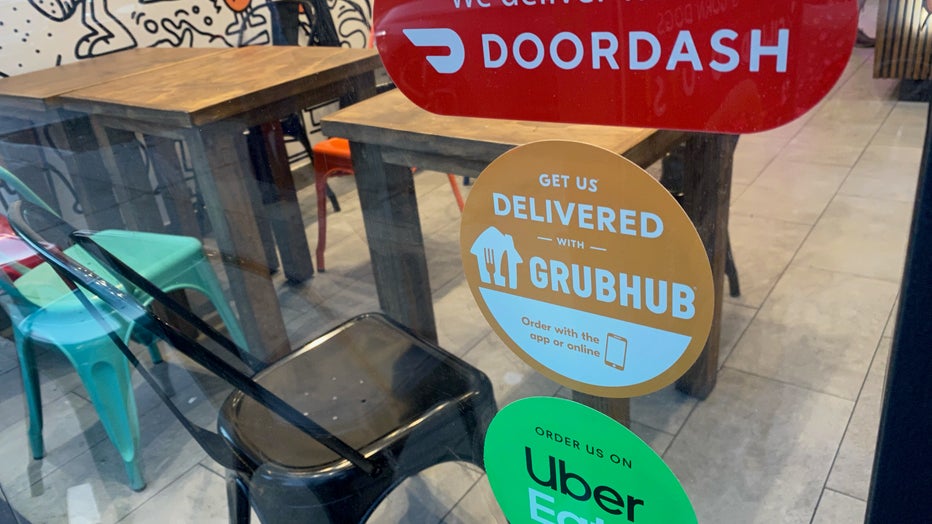How Florida's new food delivery bill will affect residents – and how much you pay to eat

Fast food breakfast prices on the rise
FOX 35 reporter Morgan Parrish talks to customers heading to get breakfast about the price increase at popular fast food restaurants.
Have you noticed that prices on some food delivery apps are significantly higher than the ones at the actual restaurant? A new bill signed by Florida Gov. Ron DeSantis this week aims to keep that from happening from now on.
DeSantis signed SB 676 on Tuesday, a food delivery regulation bill that would up the transparency between hungry customers and the restaurants they order from, alter the prices on the app, and even implement sanctions for restaurants if they violate the new policy. The bill, introduced by Sen. Jennifer Bradley (R-District 6), was supported by key local stakeholder groups, including the Florida Restaurant and Lodging Association, the Associated Industries of Florida and the Florida Chamber, a spokesperson for DoorDash told FOX 35.
The new bill makes it easier for restaurants and customers to communicate throughout the entire ordering and delivery process. For example, food delivery platforms like Uber Eats, DoorDash and Grubhub will need to create a way for contacting the customer while preparing the order, during delivery and for up to two hours after the order is picked up from the restaurant for delivery.
‘OUT OF CONTROL’: Fast food prices on the rise frustrates customers in Florida
Additionally, platforms will need to add a method for restaurants to respond to ratings or reviews left by customers.
Even though the bill went into effect immediately on Tuesday, food delivery platforms should provide restaurants with the aforementioned information by July 1, 2025.

We Deliver, Doordash, Grubhub and Uber Eats signs on restaurant door, New York City. (Photo by: Lindsey Nicholson/UCG/Universal Images Group via Getty Images)
Other transparency issues addressed in this bill call for food delivery platforms to include insurance requirements for delivery partners, identify the parties responsible for collecting applicable sales taxes and clearly disclose policies around disputed transactions and the procedure for resolving them.
Related to these customer disputes is a new policy that would remove the "unreasonable" limit of disputes customers can submit regarding their orders or delivery errors. Currently on Uber Eats, for example, there is a limit to how many refund requests a customer can make in a certain time frame.
ANOTHER NEW BILL: Giant wine bottles to soon be sold on Florida store shelves
Another area where food delivery apps and restaurants will collaborate on is prices.
Food delivery platforms may not, without an agreement with the restaurant, "intentionally inflate, decrease, or alter" a restaurant's pricing. Additionally, apps should clearly state and disclose all fees, commissions and charges involved in the transaction.
Should any of these new policies under the bill be violated, food delivery platforms can either be ordered to cease and desist or pay civil penalties up to $1,000 per violation.
It should be noted that this bill does not apply to delivery or pick-up orders placed directly with food establishments or search engines that facilitate orders without accepting a commission or free from the order.

How to save money on groceries amid inflation
Breanne Benson, also known as ?Bree the Coupon Queen,? shares tips on saving money on groceries.
FOOD COSTS: Costco's $1.50 hot dog and soda combo may not be around forever
In a statement to FOX 35, an Uber spokesperson said the company is all for transparency when it comes to this new bill.
"Uber Technologies, Inc. is in alignment with the Florida Restaurant Association that Florida’s consumers, restaurants, and food delivery platforms need a consistent standard for transparency and consent that reflects and concretely establishes the best practices that have developed organically in the marketplace," the spokesperson said. "We are also aligned with the Florida Restaurant Association in ensuring that consumer information is protected and that consumers are able to maintain control of their information, including their contact information."
A spokesperson for DoorDash shared a similar statement with FOX 35:
"We're pleased that Florida policymakers took a collaborative approach on how platforms like DoorDash can support local restaurants and passed this bill that will help us continue to connect customers with the best of their communities," the statement said. "We’re committed to protecting the privacy of everyone who uses our platform, and this bill allows us to implement tools that connect customers and merchants without jeopardizing their personal information."

